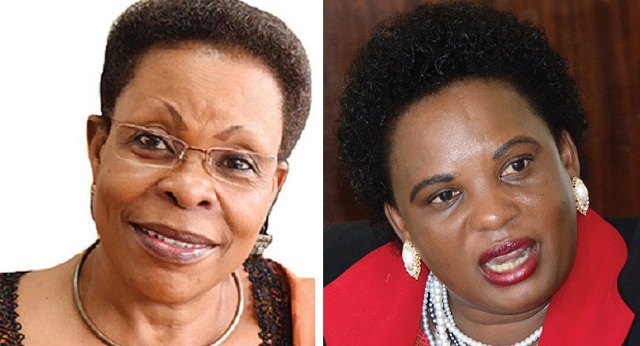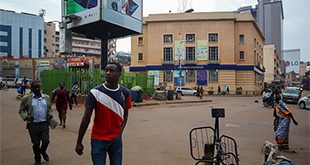
Hippo said Museveni, under recruitment, has used cabinet appointments to lure opposition politicians into joining his government and eventually ending up as members of the ruling party.
That is how former Vice President Gilbert Bukenya, who previously belonged to DP, Prof. Tarsis Kabwegyere, who belonged to UPC, Prof. Ephraim Kamuntu, who also belonged to UPC, the late former Tourism Minister, Maria Mutagamba (Democratic Party), among others, joined Museveni.
Another way to get in is to be a Saleh favourite. That is how former Security Minister Lt.Gen. Henry Tumukunde and Democratic Party (DP) Florence Nakiwala Kiyingi, the Minister of State for Youth and Children Affairs, got in.
Unclear targets
Based on this, it remains unclear what Museveni hopes to gain from his targets this time based on names that are doing the rounds.
Former FDC member Beatrice Anywar and FDC’s Anita Among and Abdu Katuntu are mentioned. All have recently worked closely with Museveni.
But Katuntu appears to be the big fish in the pan. The FDC stalwart and Bugweri County MP Abdul is the chair of the powerful parliamentary Committee on Commissions, Statutory Authorities and State Enterprises (COSASE) and is reported to have impressed Museveni in meetings and delivery of assignments. Among is his deputy. Observers say Museveni is keen to reward them and co-opt them into government.
But appointing Katuntu might bury FDC which is already said to be weakened by Muntu and a sizeable chunk of supporters. However, Katuntu will not strengthen NRM politically.
Significantly, Katuntu has signaled he will not be seeking re-election as MP in 2021. If that happens, then Katuntu will be a politician without an office or a constituency. And Museveni likes that type. They tend to be loyal to him, as the appointing authority, and true work horses without fear of voter backlash. They are also easy to dump once usefulness is exhausted.
Former Samia Bugwe North MP, Aggrey Awori is an often cited example. Awori had been an outspoken critic of government belonging to the opposition Uganda Peoples Congress (UPC) party until 2006 when he lost an election. In 2007 he started running errands for Museveni and in 2009 he was appointed Minister for ICT. He was, however, dropped two years later in 2011 and the 79-year old appears to be either in retirement or political limbo.
In an interview with The Independent he cautioned any potential Museveni recruits.
“If you are serious and a visionary, you have to say no,” he said.
He advised them to tell Museveni that they would like to help him but from outside government and not inside.
“It is better to stay and fight out of government than to join and be bound by collective responsibility,” Awori told The Independent. “It is very difficult to join cabinet as opposition and change anything; you will either come out bleeding or weeping.”
He advised them to tell the President: “I will provide constructive criticism from outside. Instead of getting into the system and I cannot speak my mind.”
He said opposition politicians who cross to Museveni’s side are eventually left ‘detoothed’ or short-changed.
“Even when you come out, you cannot speak out,” he said, “if you attempt you can be accused of disclosing cabinet secrets and can be prosecuted.
“If you are not, everyone will say, look, sour grapes. So, you are done in.”
 The Independent Uganda: You get the Truth we Pay the Price
The Independent Uganda: You get the Truth we Pay the Price



Hi nice new cabinet ministers, live long the president of the republic of Uganda the command in chief of the republic of Uganda, Mr. Y. Museveni